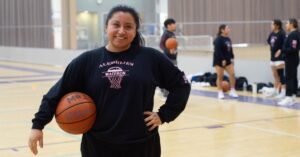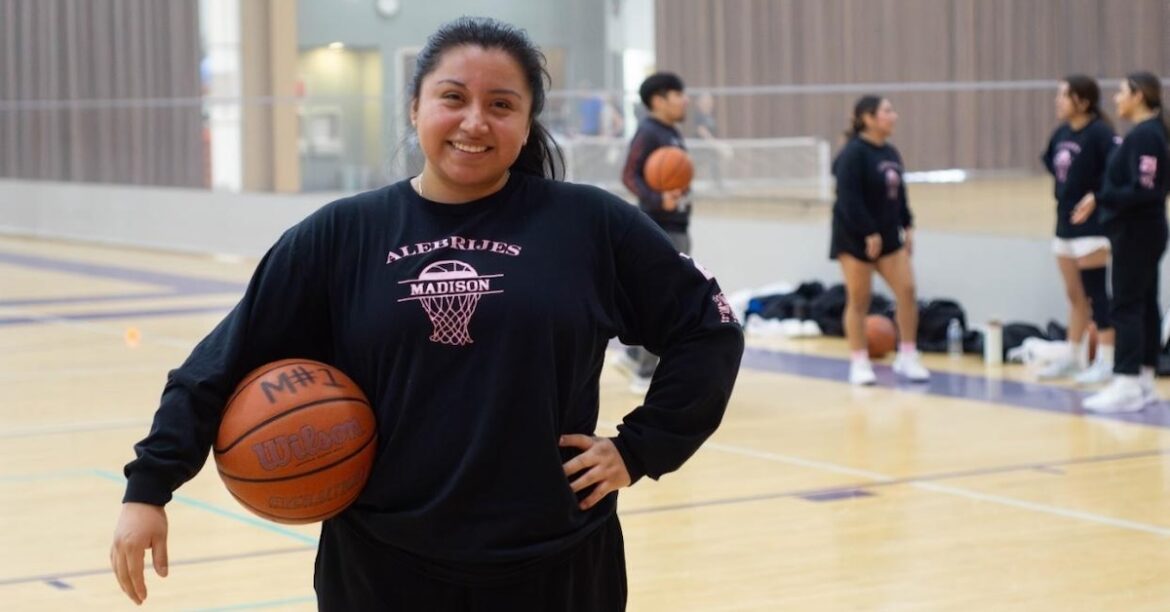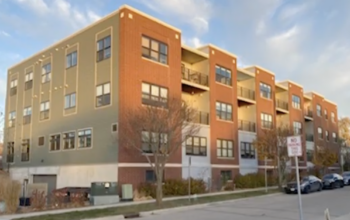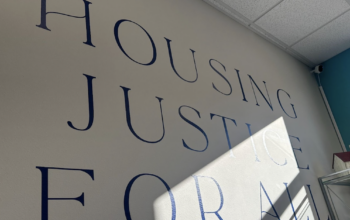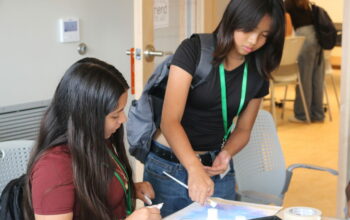A behavior health care coordinator at Access Community Health Centers and an organizer within Madison’s Oaxacan-American recreational basketball scene, Itzel Martinez Castillo, 25, is passionate about serving and uplifting her community.
Drawing from her Mexican heritage, Martinez Castillo centers the values of perseverance and resilience in her work, championing and demystifying mental health within Madison’s Latine community. She emphasizes the importance of raising awareness of mental health issues, which can be a taboo topic within the Latine community.
When she’s not providing outreach to local schools or coordinating educational programming, Martinez Castillo can be found on the basketball court crossing up the competition and making an impact at local and national tournaments. Her basketball team, las Alebrijes, is composed of women with heritage tying back to the Chinantec people of Oaxaca, Mexico. Most recently, her team took first place at a tournament in Oak Creek, Wisconsin, following a top four placement in a tournament in Long Beach, California in December.
According to Martinez Castillo, “alebrijes” are spirit guides in Mexican folklore that are meant to remind people of their place in the world and lead them to who they are supposed to be.
What do you think is the biggest challenge our community faces?
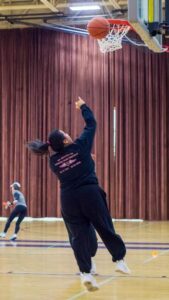
I believe one of the biggest challenges our community faces is breaking generational cycles. I feel that there are a lot of gender assigned roles a lot of the time. Something that I’ve noticed recently within my community is women being looked down on because we don’t meet the expectation of cooking, cleaning — the way that it used to be “back in the day.” However, I feel that a lot of Latinas are out seeking opportunities that weren’t given to them back then, such as being teachers or engineers or writers.
I mentioned breaking generational cycles and would add machismo to that. It’s important to hold men and even women who uphold the toxic masculinity mentality accountable. It’s okay to be vulnerable to express feelings and work to improve it. I would also include the heavy use of alcohol or misuse of alcohol. It ties in with toxic masculinity or machismo, but I feel like many can’t admit that alcohol can be an issue. It can impact their family or daily functioning.
What do you wish people in our community understood better?
I want them to be more open-minded. When I think about what our place is here in Madison, part of me just sees it as how we benefit Madison in terms of the labor force. I don’t know if it’s especially because of everything going on, but I don’t see that we are valued more than just [for] economic benefits. I do believe, though, that we bring a lot of culture and resilience. That’s why we play basketball. Like any group that migrates, they bring their traditions with them. I decided to create the basketball team, las Alebrijes, because within our community each generation that comes along is losing its customs. That was something I was a bit fearful of—by assimilating to the United States, everything our family worked for would disappear bit by bit. To me basketball is a big reflection of our resilience, and it gives us an opportunity to connect with others who are going through a similar struggle.
At the same time, resistance is really clear in my head when I think of my community, because I see it a lot. I see it every day, within social work, within the population that I work with. It takes them losing a lot — losing the trust of their kids, losing a job, their partner, an unhealthy dynamic at home — to come to a realization that [they] need to change. [They] need to change something about [themselves] or about how [they’re] handling things. [When] people accept that they need to let a change happen, they come and seek me. So, I just want people to be open to being vulnerable.
What is one change you would make if you could that would make life better for people in our community?
Honestly, access to mental health services or resources. I’ve just encountered a lot of barriers. A lot of Latinos I work with don’t have health insurance. So when somebody finally realizes [they] need the help, how [are they] going to get the help if there are no resources? So I would honestly like some sort of at least a sliding scale discount within agencies that do offer mental health that is not just based on insurance only. I think that would help with overall access to mental health care resources. I feel like that would be a step forward in the challenges that I mentioned. It would be a step forward in breaking those cycles and creating a healthier environment for the upcoming generation.
What in our community gives you hope?
We’re so strong, especially within the current political climate. We’re still pushing forward, you know, despite all the fear that’s being instilled — that’s always been instilled, but now activated. Especially with immigration policies and with ICE. “Seguimos echando ganas.” [We continue to give it all we’ve got.] We’re still going to work, still taking our kids to school. We’re still working hard, pushing forward and so connected as a community — like the Latino community as a whole — by providing each other with support and resources. And like they say, “Latinos unidos, jamás serán vencidos.” [Latinos united will never be defeated.]
This interview has been condensed for brevity and clarity.
